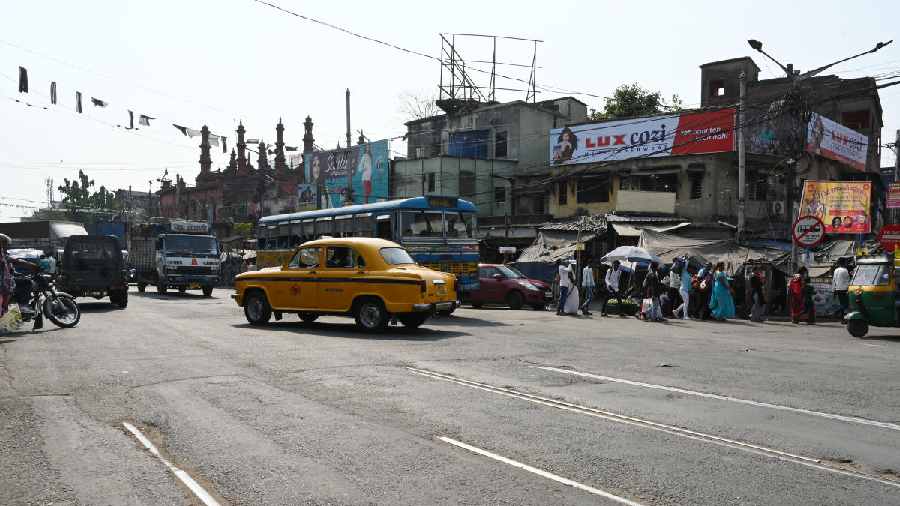A group of Kolkatans wrote to chief minister Mamata Banerjee on Tuesday, requesting her to keep on hold a drive by the state transport department to cover tram tracks with a layer of bitumen.
The purpose of the letter, from “proud residents and wellwishers” of the city, is to appeal to the chief minister “to allow trams to continue as part of Kolkata’s public transport system”.
“We have one request: that the bitumenisation of tracks that is currently under way be temporarily suspended till your office — with inputs from citizens and experts — is able to conduct a thorough review,” says the letter, whose signatories include actor-director Aparna Sen, former cricketer-coach Arun Lal, environment activist Bonani Kakkar, filmmaker Gautam Ghose, actor-director-playwright Koushik Sen, communications consultant Mudar Patherya, singer Rupam Islam, filmmaker Srijit Mukherjee, academician Sukanta Chaudhuri and author Amit Chaudhuri.
“It is our sincere belief that if the tram system was integrated into Kolkata’s overall public transport system, financial performance, air quality and commuter satisfaction would show dramatic change. And future generations of the city would be grateful and proud of Kolkata’s vision and uniqueness,” they have said.
On several stretches, tram tracks have been buried under a layer of bitumen like in Maniktala and Kidderpore. Sources in the state transport department said the bitumen was a shield against accidents, especially those involving two-wheelers.
“The slightly elevated tram lines pose risks for bikes, scooters and cycles. That is why we are giving a layer of bitumen over the tracks which are not in use,” said an official
Late last month, as the city celebrated 150 years of trams, the transport minister had bluntly said that trams will run on “four or five routes” and “it would not be possible” to run them on all routes like before.
“Our government does not want to shut down trams but, at the same time, it is not possible to run trams on all routes. Trams will run on four or five routes,” Snehasis Chakraborty was quoted as saying.
The government acknowledged that trams were an environment-friendly mode of transport but the city’s roads were too narrow to let trams run on all routes.
There are only three routes on which trams now run — Tollygunge-Ballygunge (route 24/29), Gariahat-Esplanade (route 25) and Shyambazar-Esplanade (route 5).
Metro Railway construction has also created hurdles in operating trams.
The letter sent on Monday acknowledged the concerns surrounding trams, “that they slow traffic down” and “take away space that would otherwise be available for other vehicles”.
But the signatories believe “that these objections are based on an incomplete assessment of the tram system and they overlook facts overwhelmingly in favour of trams”.
They listed what they thought worked in favour of trams
- Trams, because of their low footboard and user-friendly speed, have historically been used by the poor of the city, and the weaker sections, such as school students, the elderly, commuters and traders;
- Trams are eco-friendly and zero-emission, therefore vital to delivering climate justice and a healthier, more sustainable future for the city
- Trams can potentially drive economic growth by linking sections of the city that are commercial and educational hubs – such as areas around Sealdah, Chitpore, Bhowanipore, and Kalighat. The low usership of trams is directly the result of routes being reduced and tram services being severely curtailed.
Told about the letter, Chakraborty, the transport minister, stuck to his earlier stand. “There have been very recent accidents on unused tram tracks. We cannot have trams everywhere. After the current Metro projects are complete, we will sit with all stakeholders and decide the routes where trams will operate,” he said.
